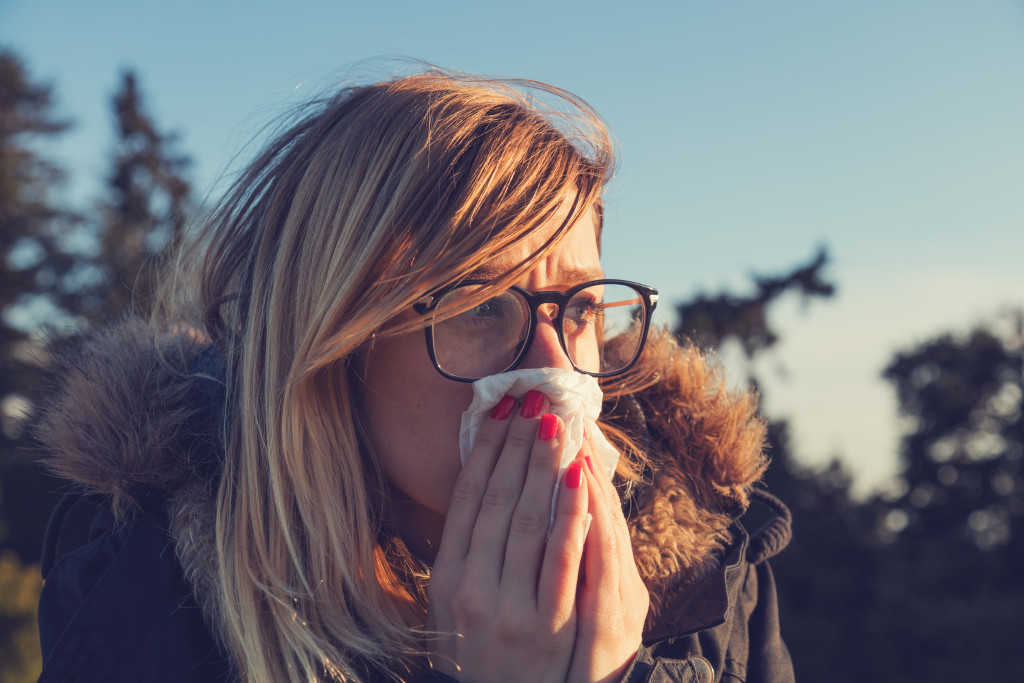The medical field has a lot of complexities. Some of these complexities can be tough to understand, and that’s why it’s pretty standard for people to create myths regarding the field of health medicine. There’s a ton out there, so we will discuss the most common medical myths circulating worldwide.
Cold Weather and Sickness
Many people attribute their sickness because of the cold weather. Although there is a degree of truth to this myth, it’s not only the cold weather that gets you sick.
The cold weather can jeopardize your immune system if you’re not used to it. It’s even more problematic if you’re not used to the weather, which means that it might not only be cold weather that leaves you vulnerable to illnesses but hot weather as well. For example, a person who lives in the tropics might get sick during the first few months if they moved to a colder country.
Furthermore, certain viruses are more active in certain climates. For example, the rhinovirus—the virus responsible for the common flu—replicates faster in the cold. It can also be certain drops in temperature that can help this virus infect people.

Expired Medications
There’s an ongoing myth that using expired medications can kill you. You certainly want to avoid using expired medication whenever you can, but if you must, know that expired medications won’t kill you or hurt you in any way.
The expiration found on medications, especially those found in over-the-counter drugs, is related more to the medicine’s potency than it is expired. Studies have shown that 90% of over a hundred drugs are fine to use even 15 years after the manufactured date. However, don’t expect that expired drugs have the same potency as unexpired ones. They are likely to lose their potency throughout the years, so it might take some time before they kick in.
As a general rule, avoid using expired prescription drugs if you can since those have side effects that you can’t consider.
There’s a Cure for Allergies
The reality about allergies is that it’s your immune system going haywire. It’s undoubtedly a disease, but it’s more about how your immune system overreacts towards an allergen. Unlike many other diseases, allergies aren’t fatal unless severe asphyxia is involved, which is particularly rare and usually happens alongside asthma and other respiratory diseases.
There is a common myth among people that there’s a cure for allergies: exposing yourself to the allergen as much as possible. This myth is not true, and you should not do it in any shape or form. However, treatment is quite similar to this, especially for food allergies.
Food allergies are one of the most common allergies worldwide. It involves certain nutrients in food that people can’t digest properly. To handle this type of allergy, various allergy experts provide well-studied food intolerance treatments. It’s not the same as the myth stated above, but they have a few similarities. The treatments do introduce you to the allergen but in a small dosage. As the expert increases the dosage, your body’s immune system gets used to it.
So why shouldn’t you do this treatment yourself? Well, the main problem is that you’re not to expose yourself to your allergens without a professional’s help. This might increase the severity of your allergies without you knowing about them. Moreover, the allergen they are exposing to your body is an advanced substance that has some medical properties.
This isn’t a cure for allergies but rather a way to treat them. Once you’re no longer exposed to the allergen for quite some time, the symptoms will occur once again, but this time not as severe as before.
You Need to Drink Seven Glasses of Water a Day
Drinking seven glasses a day seems like a prescription that everyone would tell you if you want to stay healthy. However, this isn’t inherently true. Drinking seven glasses isn’t going to protect you from disease or make you healthier, and your consumption of water depends on your body mass index (BMI).
Some people might require less water because they have a lower BMI, while others might require more because they’re heavier. People who tend to exercise more require more water than those who don’t. Your adequate water intake depends on your weight and lifestyle, and drinking too much water might be unhealthy for you if you’re not careful.
Vaccines Cause Flu
Lastly, we have to debunk this myth that has been circulating during the pandemic: vaccines don’t cause flu. For those people who experience the flu after their vaccine, it’s more of an unintended side effect and a reaction of your immune system towards the vaccine. It’s nothing lethal, and it’s a common side effect for people who have a good immune system.
Now that we’ve debunked these myths, you must stop spreading them. You and your loved ones can live a much better life knowing that these myths are proven false.


